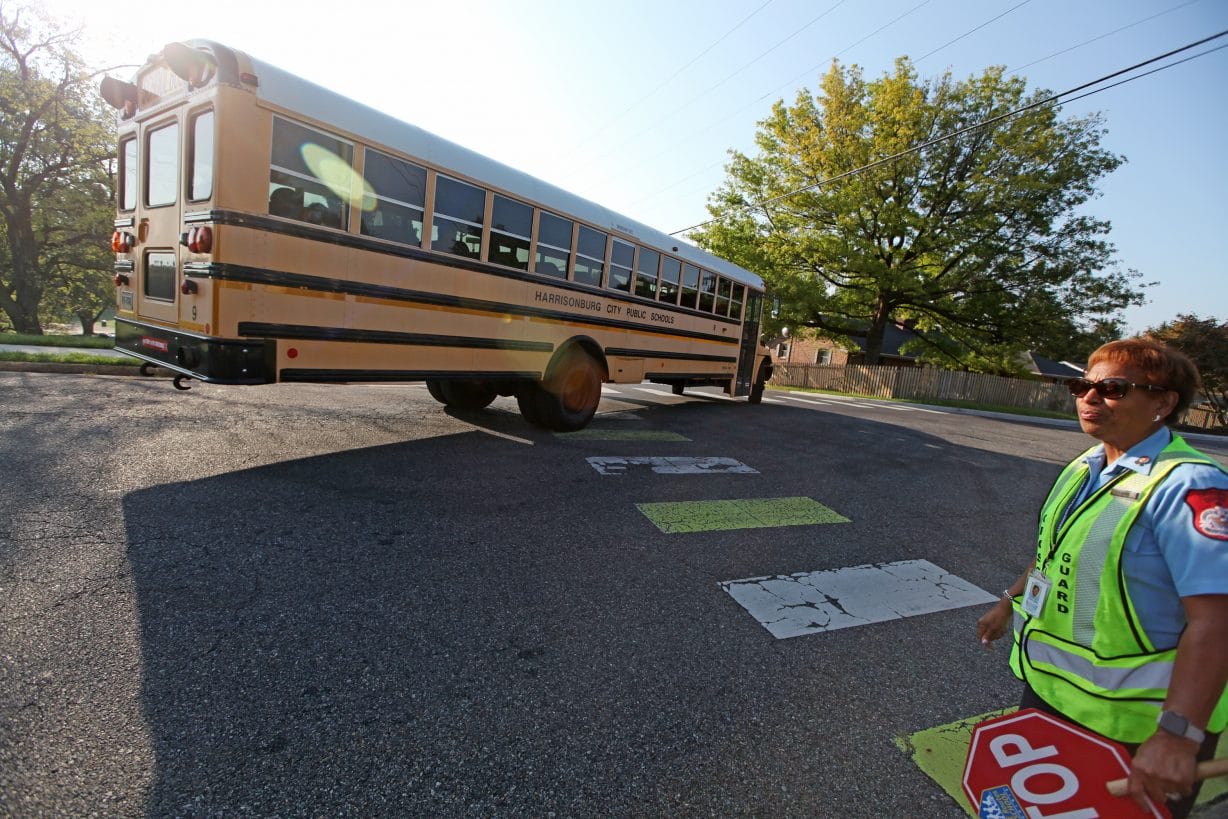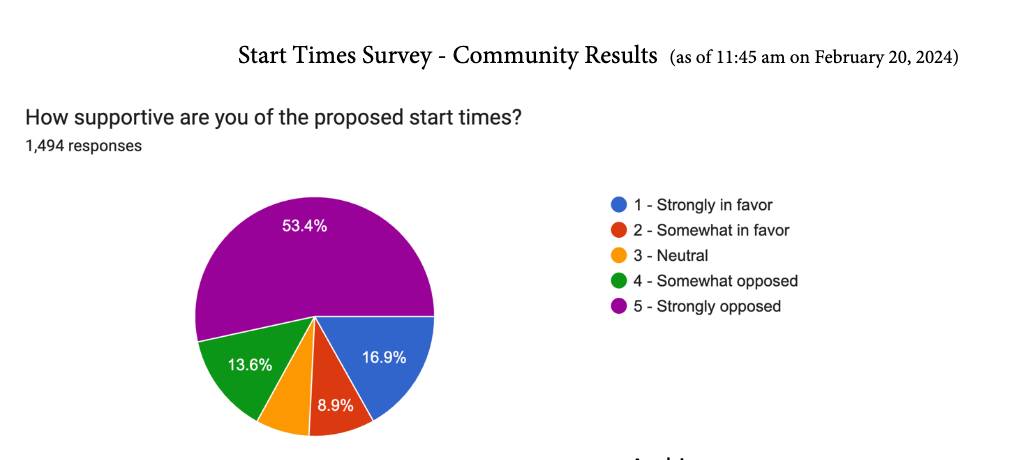
By Haley Thomas, contributor
After the collapse of an effort to change city schools’ start and end times, Superintendent Michael Richards unveiled his plans for a sequel: one he hopes has a better ending.
Last month, the school board struck down a task force’s proposal to start elementary schools earlier and middle schools later after reviewing community and staff input and diving deeper into the challenges of bus routes and childcare availability. After the March 19 vote, the school board asked Richards to try again to suggest a way for another proposal that is grounded in scientific understanding of the sleep behaviors of children and adolescents — and one that would address (or at least compensate for) bus transportation challenges.
Richards presented his plan for a new proposal during Tuesday’s work session. While he thanked the initial School Start Times Task Force for its work, he said ultimately, “it was not an ideal arrangement,” especially considering community child care resources and lack of enough bus drivers.
“The task force knew that, the community knew that; we gathered all sorts of community input from all stakeholders,” Richards said. “The consensus pretty much was…[changing start and end times] was too disruptive to the lives of stakeholders and would not have enough payoff, in terms of aligning with science, to justify the disruptions it would cause.”
He said he wants to refresh the task force by allowing different and/or additional parents a chance to volunteer, and he said he would consider adding other stakeholders. In addition, the group would receive comprehensive data on community child care resources and school bus driver numbers to help them make their proposal.

His considerations for the new proposal, he said, included charging the task force with:
- Developing ideal start and end times for schools using relevant peer-reviewed research.
- Mapping out what additional child care resources and bus drivers are needed to implement the ideal solution.
- Reporting findings to Richards, who would then report to the board with a list of community partners important for the development of child care resources. (The City Transit Department will have a seat on the Task Force and already is aligned as a partner.)
The School Board will schedule special work sessions with affected community organizations and partners to work on developing the infrastructure needed to implement the ideal solution.
“Is this a start-times task force or a childcare-solution-aimed-at-a-goal task force?” board member Deb Fitzgerald asked after Richards explained his plan.
Richards said he believes the two are inseparable and that he doesn’t see how they’ll reach ideal start and end times without partners developing additional child care resources in the city.
“I totally agree that the start time issue is connected very strongly to the idea of who takes care of the kids when they’re not at school,” Fitzgerald said. “I guess a piece of me gets troubled by the fact that we’re now taking on childcare.”
Richards told Fitzgerald he heard her concerns, and said that he’s been “thinking outside the box” when it comes to how the schools can help provide child care. He added that he’s working on partnerships within the community to help provide more child care options to HCPS staff members.
Fitzgerald argued that child care is a bigger issue than the district can take on alone.
“The city is like a house where there are tables in every room,” Fitzgerald said. “And everybody’s working independently on a huge problem that the whole house is experiencing. I’m not sure that another table in another room necessarily helps things without some kind of coordination.”
Sal Romero, the division’s chief of staff and chair of the task force, said many child care programs in the city are looking to expand, and some may be willing to expand into the schools themselves. He said the Boys and Girls Club now offers in-school childcare before and after hours in both Stone Spring Elementary School and Bluestone Elementary School. Fitzgerald called that “a game-changer.”
Richards said expanding these programs wouldn’t be enough to solve every problem people had with teh previous task force’s proposal for school start and end times, but it would be the first course of action.
Fitzgerald said at first, she worried that this was an uncoordinated approach.
“Although, what Sal just said makes me think that this is something quite different,” Fitzgerald said. “It brings the schools into play and uses community facilities in a way that could be expanded on and really help.”
Board member Tom Domonoske said he liked Fitzgerald’s analogy of tables in different rooms, and said he believes that city schools should coordinate discussions to find a solution to the lack of child care in the city.
But Board member Emma Phillips said she disagreed with Domonoske.
“I think that our schools take on a variety of roles, and I feel like this is one more that isn’t necessarily on our schools’ to bear,” Phillips said. “I worry about overextending our teachers and overexerting our schools.”
Domonoske clarified that he’s against asking teachers to do “more than what they’re already doing” in the classroom.
“I think what we’re talking about are new solutions that need to be properly funded,” Domonoske said.
Richards said he agreed, and said the process won’t result in extra work for HCPS staff.
The board members agreed to table the discussion for the time being, and have Richards flesh out his plan using the board’s feedback.
“We need a start-times-and-everything-else task force,” Fitzgerald said. “And we need T-shirts that say that.”
Thanks for reading The Citizen, which won the Virginia Press Association’s 2022 News Sweepstakes award as the top online news site in Virginia. We’re independent. We’re local. We pay our contributors, and the money you give goes directly to the reporting. No overhead. No printing costs. Just facts, stories and context. We value your support.












